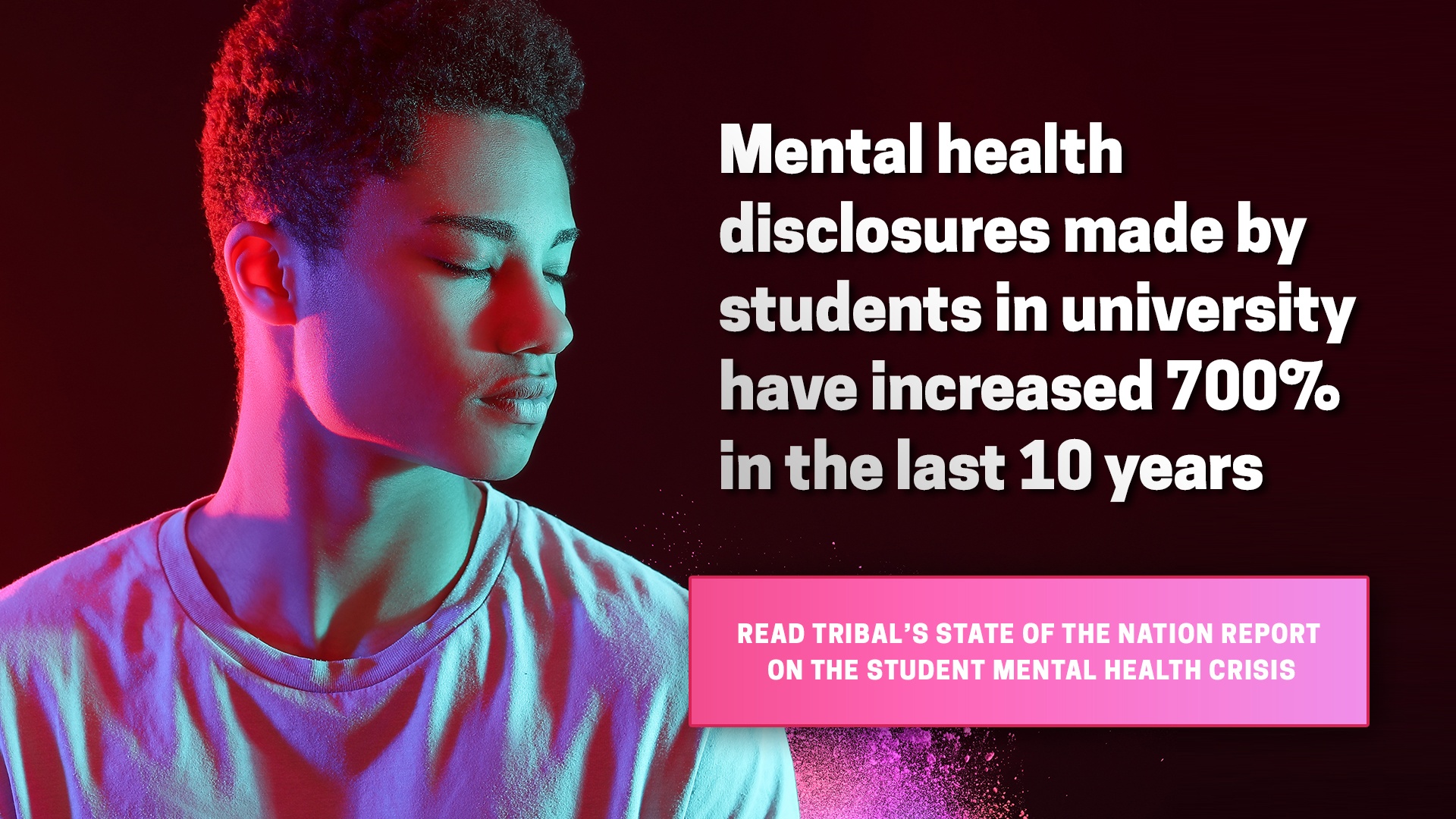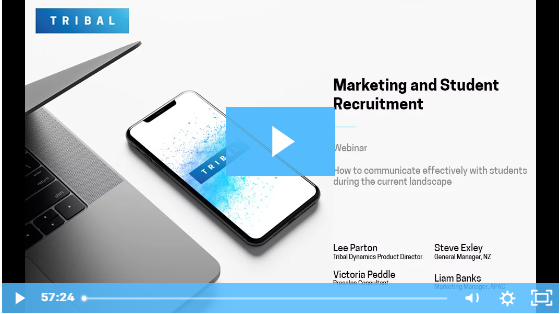Universities should ensure that every aspect of a student’s experience [is] designed to support their mental wellbeing and that students should naturally encounter interventions that can assist them to develop their own resilience, wellbeing and self-management.” Student Minds
If the State of the Nation Report into the mental health crisis in Higher Education published earlier this year tells us anything - it’s that now, more than ever, students, academics and staff need a sense of community. Not just because students that are engaged with their institution’s community are happier and more satisfied but also because they may be more likely to seek help when they need it.
The idea of ‘community’ has been evolving for some time, increasingly blurring the distinction between ‘in real life' and virtual reality. Faced with a pandemic, people of all generations sought virtual ways to stay connected, accelerating the adoption of new technology that is now embedded in daily life, despite the reintroduction of face-to-face interaction.
This presents real opportunities for the sector as the current generation of digital-savvy students is particularly hungry for digital communications, self-service and hybrid learning environments. A demand that is only set to increase with Generation Alpha (those born after 2011) who have been fully immersed in technology throughout their lives:
They won’t know a world without virtual reality, smartphones, electronic readers, the internet of things and wearables.” Dan Schawbel, research director at Future Workplace
Students are increasingly expecting services to be delivered virtually, helping universities address the demand for support services without, as a JISC report indicates, “investing heavily in bricks and mortar” and additional capacity. It’s why universities are instead investing in virtual mental health and wellbeing portals that provide options for self-service, enabling students to access the tailored support they need, at a time that suits them, on their preferred device via their chosen channel.
So what do students expect from a mental health and wellbeing portal?
Supporting your students begins with understanding who they are and what they need. And in some cases, that requires helping them overcome the stigma associated with asking for help. With Tribal’s Student Support and Wellbeing solution, you can reach students at any point in their personal journey with the services they need by:
-
Eliminating roadblocks to service - use email automation, event management, segmentation and notifications to promote capabilities effectively and make sure students know where to go for support.
- Reducing stigma with a safe and easy way for students to seek help - provide students with multiple contact channels and an on-demand way to book an appointment and exchange information in a secure and safe environment.
- Providing options for self-service - help students find answers to basic FAQs by leveraging your knowledge base across your institution. Surface relevant content based on context signals so that students find the right information quickly.
- Personalising your students’ support experience - provide students with a transparent and engaging experience by delivering services and information that reflects their specific needs and concerns.
- Guiding students to the right services with the right providers - present students with context-driven options likely to meet their needs, and allow them to check availability and book an appointment directly from their search.
In order to build this type of wellbeing portal, universities need a technology strategy with data integration at the heart of it. Getting integration right is key to helping students navigate seamlessly from their online interactions with their university, to their face-to-face engagements – and particularly from one service to another. As ultimately, opportunities to improve the Student Experience at every touch point needs solutions that support:
- Blended service delivery to include online and flexible services with single sign-on and personalised access to everything a student needs via their chosen channel and device.
- Remote and mobile ecosystems that keep students on track deepen their sense of connection with the curriculum and extra-curricular and provide collaborative, supportive spaces in which to learn and achieve.
- Community building with mobile apps and private social networks that facilitate communications and feedback whilst keeping students and staff safe and secure, with traceable interactions.
Why an engaging wellbeing portal is now a must-have for universities
Student mental health and wellbeing have a direct impact on student experience, satisfaction, attendance and engagement, achievement and future occupational performance. Increasingly, students - and their parents - know this. Statistics from a recent UCAS report highlight that 1 in 5 students now research the support available for existing mental health conditions before they apply – and more than a quarter of all applicants look at the provision of general mental health and wellbeing services before shortlisting their university choices.
So the university’s approach to student mental health is increasingly likely to impact future student pipelines. This is making investments in the right solutions to support student mental health and wellbeing fundamental to the future financial health of the university.
To discover how to build your university’s sense of community and support student wellbeing - check out this on-demand webinar introducing the tech needed to succeed:




